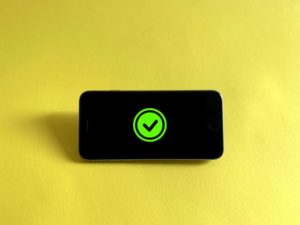
Stockholm-based Scytáles and its Luxembourg-based partner Netcompany-Intrasoft have been selected to develop the European Digital Identity Wallet.
Financial terms of the contract were not disclosed, but it is a project of monumental importance, with European Union authorities aiming to roll out a digital ID solution that can be used across member nations’ borders. EU authorities first unveiled plans for the digital wallet last year, framing it as a replacement of the region’s eIDAS standard. The project has involved a lot of political wrangling – just like everything else in the EU – but the general idea has been to provide European Union citizens with a standard, digital means of ID that would also encompass e-signature capabilities.
That having been said, there has been some jockeying among stakeholders. This past September, for example, saw the dramatic entrance of the Nordic-Baltic eID (“NOBID”) Project onto Europe’s digital ID scene. Organized between Denmark, Germany, Iceland, Italy, Latvia, and Norway, the project aimed at piloting a digital wallet with payment capabilities that would be aligned with the aims of the EU’s digital wallet program. It featured the participation of some major private sector actors including Thales and iProov, with the presence of the latter in particular signaling a potentially important role for biometric onboarding.
It isn’t clear to what extent the NOBID project’s architects had hoped to establish theirs as the salient model for digital ID in Europe. In any case, the EU’s awarding of the contract to Scytáles does not preclude the possibility of NOBID technology, design, or components finding their way into the broader European Digital Identity Wallet.
In a statement announcing the contract win, Scytáles said its work would entail development, consultancy, and support services. “We are honored to have been awarded the EU Digital Wallet contract with our reputable partner and proud that Scytáles’ world leading technology gets recognized,” said Scytáles CEO Konstantin Papaxanthis.
Whether more subcontractors will become involved in the project remains to be seen. Nor is it yet clear exactly what the wallet itself will look like in terms of functionality beyond virtual ID and e-signatures. But with a major pair of vendors on board, it is clear that the project is getting some major traction.

Follow Us